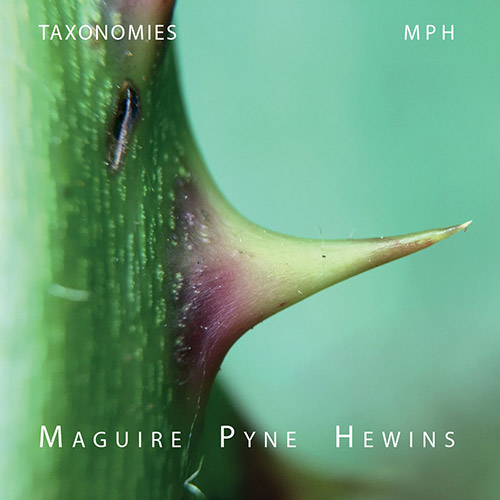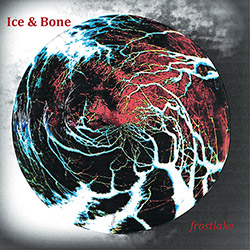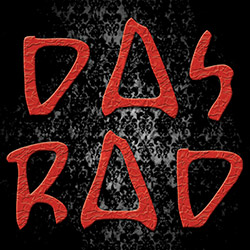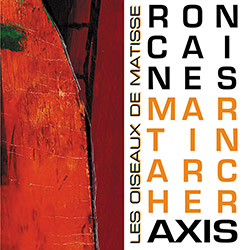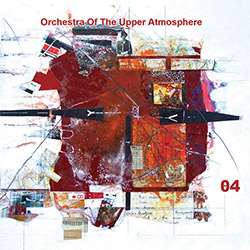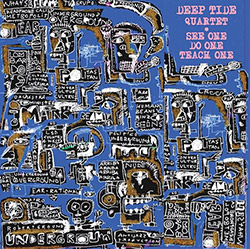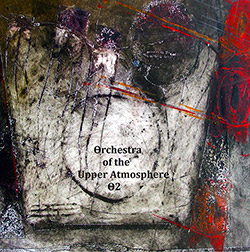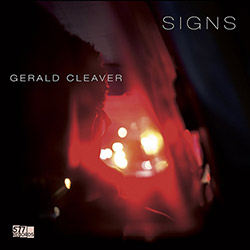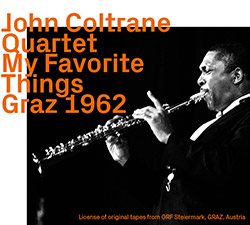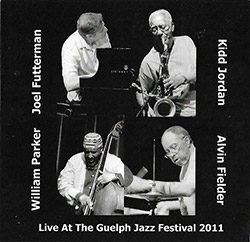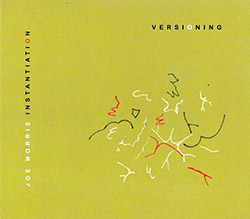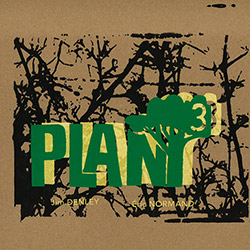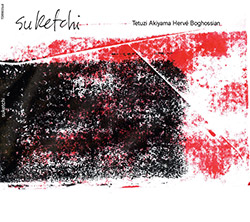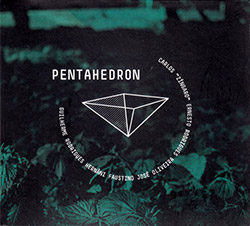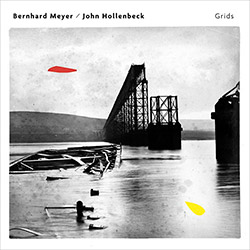
A trio of legendary Canterbury, avant improvisation and contemporary compositional players come together for an album recorded live in the studio over two days, from Alex Maguire on piano and Hammond organ, Martin Pyne on vibraphone, drums, percussion & electronics, and Mark Hewins on guitars & electronics; inventive, sophisticated, hallucinatory & virtuosic work.
Out of Stock
Quantity in Basket: None
Log In to use our Wish List
Shipping Weight: 2.00 units
Sample The Album:
Alex Maguire-piano, Hammond organ
Martin Pyne-vibraphone, drums, percussion, electronics
Mark Hewins-guitars, electronics
Click an artist name above to see in-stock items for that artist.
UPC: 5051078972022
Label: Discus
Catalog ID: 087CD
Squidco Product Code: 28240
Format: CD
Condition: New
Released: 2019
Country: UK
Packaging: Cardboard Gatefold 3 Panels
Recorded at Playback Studio in Margate, UK, on August 15th, 2018, and at TallGuy Studio, in Egham, UK, on August 16th, 2018.
"MPH is a trio featuring three of the most creative musical minds on the improv scene today. Their music draws from a huge range of genres to create bewitching and astonishingly original sound pictures, shot through with vitality, tenderness and humour. Taxonomies is the trio's debut album, taking inspiration from a quirky perspective on the natural world. PH came together in 2018 at the suggestion of Alex Maguire, who had worked with Mark Hewins and Martin Pyne individually. The trio plays completely improvised music. All three musicians have diverse musical interests and a wealth of experience, and this results in music with a gloriously wide frame of reference: their playing can be by turns playful, ethereal, earthy, abrasive, delicate and lyrical. Listeners will hear influences from many sources, ranging from the blues to the jazz abstractions of Jimmy Giuffre and the prepared piano sounds of John Cage.
This album was recorded live over two days. The first was on 15/08/18 at Playback Studio in Margate where Alex played Hammond Organ, Mark digital slide guitar and electronics, and Martin moved between vibraphone with electronics, drums, and a spot of processed Wave Drum. The second track on the album, "False Jasmine", was actually the first piece the group played together. The second day was at TallGuy Studio, Egham on 16/08/18. Alex switched to acoustic piano, while Mark used a big fat jazz guitar, again with electronics on a few pieces, and Martin played acoustic vibraphone, with and without preparations, and some small percussion.
The titles are inspired by the wonderfully evocative traditional names for various flora and fauna, suggestive of timeless narratives, characters, landscapes and mindscapes."-Discus
"MPH came together in 2018 at the suggestion of Alex Maguire, who had previously worked separately with both Martin Pyne and Mark Hewins. Given their varied backgrounds in jazz, free improvisation, rock and classical musics, dance and theatre, it is no surprise that the three have performed a music here that is gloriously eclectic and wide-ranging in its references, by turns playful, ethereal, abrasive, earthy, delicate and lyrical.
What is surprising, however, is that the entire set is totally improvised. I say surprising, not because the musicians are not themselves fine improvisers, but that the music sounds almost through composed in places, or at least structurally organised. There is a solid logic to each piece, the wooden percussion of Pyne on the opening Tormentil, for example, shuffling out a rhythm over which Maguire plays a delightfully engaging melody set off by Hewins's Latin guitar, together sounding as if this was a piece into which they had put considerable thought beforehand. Likewise, the intertwining of vibes, piano and guitar on Finger Muscle suggests prior organisation. But not so, if they are to be believed.
Interestingly, the first day's music, with Maguire on organ sounding more like Sun Ra than anyone else, is looser and more evidently improvised, but again still has a form about it that suggests pre-thought. That tension between free improvisation in the studios and harmonic and rhythmic coherence on the finished CD is what gives this set its power, and its great appeal.
By the way, all the track titles are, in their words, "inspired by the wonderfully evocative traditional names for various flora and fauna, suggestive of timeless narratives, characters, landscapes and mindscapes." Evocative, that's the best word to describe this set."-Simon Adams, Jazz Journal
Get additional information at Jazz Journal
Artist Biographies
• Show Bio for Alex Maguire Alex Maguire, piano. "b. 6 January 1959, Croydon, Surrey, England. Maguire remembers improvising at the piano before he received any lessons, which began at the age of eight. He studied music at the University of London and gained a BA degree; he also took lessons from Wanda Jeziorska, Andrew Ball, and Howard Riley. He names as his inspiration a number of respected figures in the free improvising scene, such as Tony Oxley and Evan Parker, as well as jazz players Cecil Taylor and Eric Dolphy. Maguire says he is interested in 'pre-literate music, anything original rather than imitative (irrespective of idiom)'. He has studied with classical composers John Cage and Michael Finnissy and his arsenal of techniques and figures, which stretch from avant garde classical piano to jazz, from kwela to R&B, has made him much in demand. His sympathy as an accompanist is only matched by his imagination, perverse and frequently humorous. He formed a partnership with drummer Steve Noble and played with him at Company Week 1989. He has also worked with Tony Oxley's Celebration Orchestra and Sean Bergin's MOB groups, and toured with his own nine-piece, the Cat O' Nine Tails, featuring drummer Louis Moholo and saxophonist Alan Wilkinson. Of particular note are his appearances on recordings by reed player Michael Moore, 1999's Mt. Olympus and 2001's White Widow. Maguire also plays with Elton Dean (saxophone), Fred T Baker (bass) and Liam Genockey (drums) in the free jazz quartet Psychic Warrior." ^ Hide Bio for Alex Maguire • Show Bio for Martin Pyne "Martin Pyne is a percussionist, composer, and improviser working from near London in the UK. He has extensive experience in a wide range of contemporary music styles from classical to jazz and free improvisation. He is a member of Dangerous Kitchen , a trio with renowned sax player Stan Sulzmann and fellow percussionist Simon Allen, and composer Paul Robinson's Harmonie Band. He is very active on the contemporary dance scene in London and has worked with several choreographers including Mark Baldwin, Chard Gonzalez and Sheron Wray. He has developed a unique playing style combining electronics and acoustic instuments to create a rich and expressive sound world. Long Voyage Home, his debut solo album, is performed by Martin, mostly on a sampling drum pad, as well as toy piano and synthesizer, and features guest artists Dai Pritchard (from Klub Mundi and Loose Tubes) on clarinets and saxophone, singer Joseph Aquilina, and BBC Radio presenter Sarah walker. The music, which draws on Homer's Odyssey for inspiration, is organic and evocative, with a raft of mysterious and hypnotic textures. Musical inluences range from Miles Davis, to John Cage taking in the likes of Bjork and Bobby Previte, as well as a number of world musics, along the way. On a recent edition of BBC Radio 3's MIXING IT show, the track Stringing The Bow was favourably compared to sevenities era Miles Davis." ^ Hide Bio for Martin Pyne • Show Bio for Mark Hewins "Mark Hewins (born 24 March 1955) is a British jazz guitarist known for his connections to the Canterbury scene, a group of English progressive rock musicians during the 1960s. Hewins' professional career as a guitarist began in 1973 with the London band Mother Sun with Steve Tozer and lead singer Dave Bell. Early work included on the Dance Orchestra's A Luta Continua (alongside Phil Collins, John Martyn, and Danny Thompson). Hewins has worked extensively with various Canterbury scene musicians, including multiple projects with Elton Dean. He played on Dave Sinclair's Moon Over Man album and with him in The Polite Force (1976-8, Canterbury Knights album). He was in Going Going (1990) and Caravan of Dreams (1991) with Richard Sinclair. Hewins played in later incarnations of Soft Heap (with Dean, Pip Pyle and John Greaves) and can be heard on A Veritable Centaur. He was a member of Gong in 1999. Hewins has also worked extensively with Hugh Hopper, including in Dark Horse and Mashu (1995-8). Hewins also worked with Mashu percussionist Shyamal Maïtra on other projects, including a duo and a trio with Carol Grimes. He has collaborated with Dennis Gonzalez and Andrew Cyrille in the U.S. and in Europe with Django Bates in Research. Hewins' first solo album was The Electric Guitar (1987). He was Lou Reed's guitar tech on several tours. He leads his big band FF, his dance band Tritonik (with Tania Evans, who went on to Culture Beat), and the Music Doctors (with Dean and Lol Coxhill). He has played with Julie Felix, Bill Bruford, Fred Frith, Joe Lee Wilson, Dudu Pukwana, John Stevens, Mervyn Africa, and Anthony Aiello. He has also written music for film and television commercials." ^ Hide Bio for Mark Hewins
4/17/2024
Have a better biography or biography source? Please Contact Us so that we can update this biography.
4/17/2024
Have a better biography or biography source? Please Contact Us so that we can update this biography.
4/17/2024
Have a better biography or biography source? Please Contact Us so that we can update this biography.
Track Listing:
1. Tormentil 9:41
2. False Jasmine 9:31
3. Finger Muscle 4:33
4. Meadowsweet 4:57
5. Psychedelic Frogfish 4:54
6. Eyebright 5:14
7. Purple Loosestrife 11:14
8. Rocket Larkspear 6:20
9. Lamina 5:47
10. Sally Lightfoot 8:40
Improvised Music
Free Improvisation
Electro-Acoustic
Electro-Acoustic Improv
London & UK Improv & Related Scenes
Trio Recordings
Staff Picks & Recommended Items
Search for other titles on the label:
Discus.


